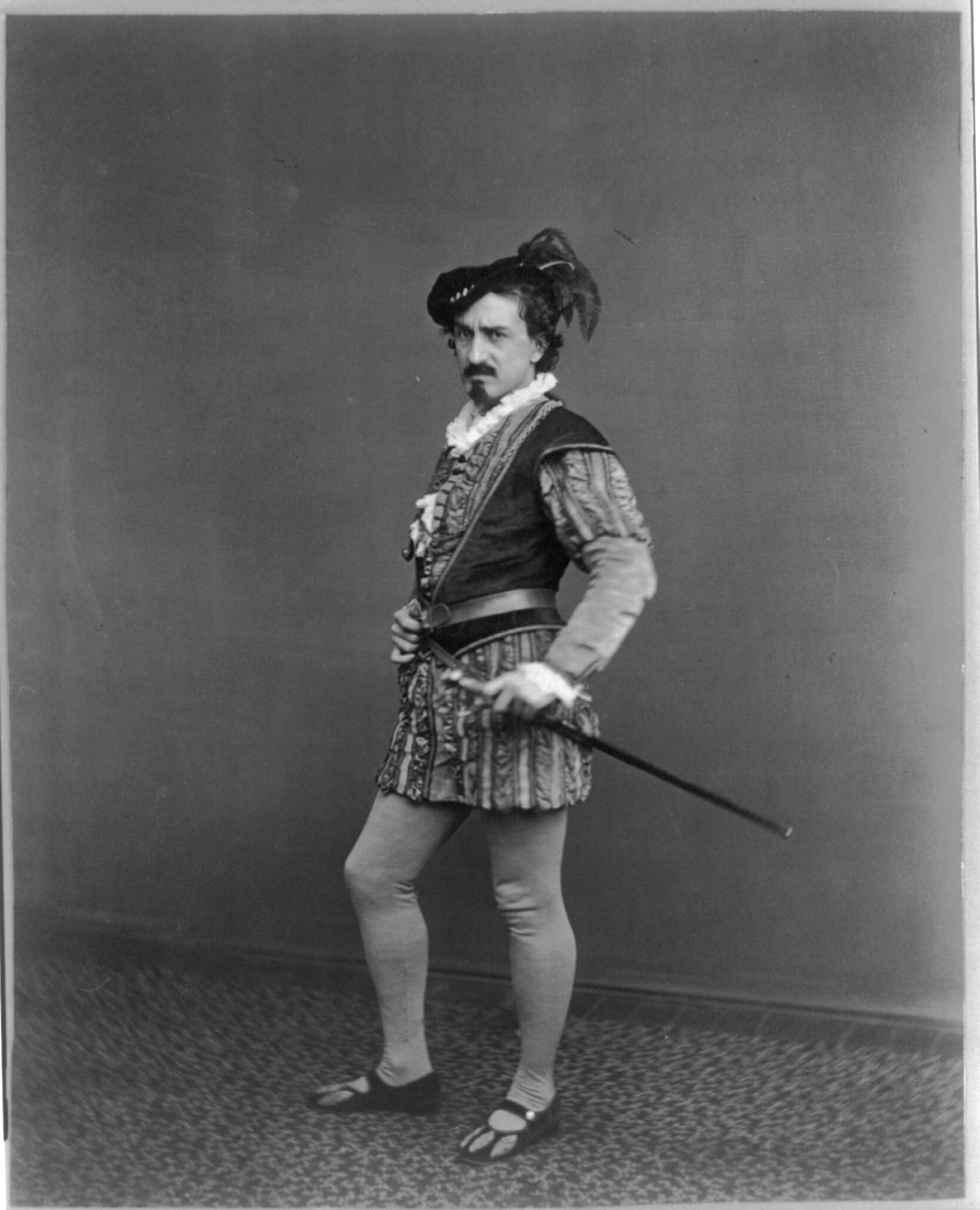
Iago
Iago (/iˈɑːɡoʊ/) is a fictional character in Shakespeare's Othello (c. 1601–1604). Iago is the play's main antagonist, and Othello's standard-bearer. He is the husband of Emilia, who is in turn the attendant of Othello's wife Desdemona. Iago hates Othello and devises a plan to destroy him by making him believe that Desdemona is having an affair with his lieutenant, Michael Cassio.
For other uses, see Iago (disambiguation).The role is thought to have been first played by Robert Armin, who typically played intelligent clown roles like Touchstone in As You Like It and Feste in Twelfth Night.[4]
Description of character[edit]
Iago is one of Shakespeare's most sinister villains, often considered such because of the unique trust that Othello places in him, which he betrays while maintaining his reputation for honesty and dedication. Shakespeare contrasts Iago with Othello's nobility and integrity. With 1,097 lines, Iago has more lines in the play than Othello himself.
Iago is a Machiavellian schemer and manipulator, as he is often referred to as "honest Iago", displaying his skill at deceiving other characters so that not only do they not suspect him, but they count on him as the person most likely to be truthful.
Shakespearean critic A. C. Bradley said that "evil has nowhere else been portrayed with such mastery as in the evil character of Iago",[5] and also states that he "stands supreme among Shakespeare's evil characters because the greatest intensity and subtlety of imagination have gone into his making."[5] The mystery surrounding Iago's actual motives continues to intrigue readers and fuel scholarly debate.
Critical discussion[edit]
In discussing The Tragedy of Othello, scholars have long debated Iago's role—highlighting the complexity of his character and manipulativeness. Fred West contends that Shakespeare was not content with simply portraying another "stock" morality figure, and that he, like many dramatists, was particularly interested in the workings of the human mind. Thus, according to West, Iago, who sees nothing wrong with his own behaviour, is "an accurate portrait of a psychopath",[6] who is "devoid of conscience, with no remorse".[6] West believes that "Shakespeare had observed that there exist perfectly sane people in whom fellow-feeling of any kind is extremely weak while egoism is virtually absolute, and thus he made Iago".[6]
Bradley writes that Iago "illustrates in the most perfect combination the two facts concerning evil, which seem to have impressed Shakespeare the most", the first being that "the fact that perfectly sane people exist in whom fellow-feeling of any kind is so weak that an almost absolute egoism becomes possible to them", with the second being "that such evil is compatible, and even appears to ally itself easily, with exceptional powers of will and intellect".[5] The same critic also famously said that "to compare Iago with the Satan of Paradise Lost seems almost absurd, so immensely does Shakespeare's man exceed Milton's Fiend in evil".[5]
Weston Babcock, however, would have readers see Iago as a "human being, shrewdly intelligent, suffering from and striking against a constant fear of social snobbery".[7] According to Babcock, it is not malice, but fear, that drives Iago. For, "Iago dates his maturity, as he considers it, his ability to understand the world, from the age at which he recognized every remark to be personally pointed. One only who lacks inner assurance and is so constantly on guard against any hint of his inferiority could so confess himself".[7]
John Draper, on the other hand, postulates that Iago is simply "an opportunist who cleverly grasps occasion" (726),[8] spurred on by "the keenest of professional and personal motives".[8] Draper argues that Iago "seized occasions rather than made them".[8] According to his theory, Iago "is the first cause, but events, once under way, pass out of his control".[8] Following this logic, Draper concludes that Iago "is neither as clever nor as wicked as some would think; and the problem of his character largely resolves itself into the question: was he justified in embarking upon the initial stages of his revenge?"[8]